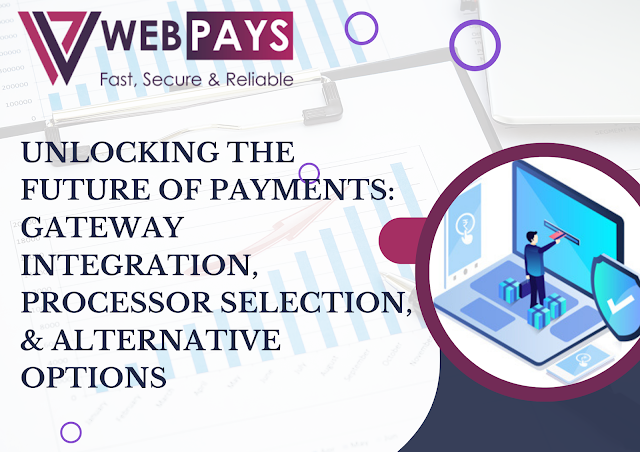Unlocking the Future of Payments: Gateway Integration, Processor Selection, & Alternative Options


You must have heard that we are
SSL certified payment gateway or website. Several questions may also have
arisen in your mind at that time about what SSL is. Today in this blog, we will
explain the nuts and bolts of SSL so that you can get the answers to your
questions. Let’s start with the definition of SSL.
An SSL (Secure Sockets Layer)
certificate is a digital certificate that provides secure, encrypted
communication between a user's web browser and a web server. It ensures that
the data transmitted between the two points remains private and cannot be intercepted
or tampered with by unauthorized parties. SSL certificates use encryption
algorithms to scramble the data during transmission and decrypt it only when it
reaches its intended destination.
The SSL certificate is crucial for
establishing a secure connection, and it serves two primary purposes:
When sensitive information, such
as login credentials, personal data, or payment details, is transmitted over
the internet, SSL encryption ensures that this data remains confidential and
secure from potential eavesdroppers.
Encryption of data, is like
putting information into a secret code before sending it to someone else. It's
a way to make sure that only the intended recipient can understand and read the
message.
Imagine you have a special lock
(encryption algorithm) and a key (encryption key). You want to send a message
(data) to your friend securely. So, before sending the message, you lock it
using your special lock (encryption) and only your friend, who has the matching
key (decryption key), can unlock and read the message.
Encryption uses complex
mathematical algorithms to scramble the original data into a form that appears
like gibberish to anyone without the right key. This way, even if someone
intercepts the encrypted message during transmission, they won't be able to
make sense of it without the proper key.
The process of encryption makes
sure that sensitive information, like passwords, credit card numbers, personal
data, or confidential messages, remains safe from unauthorized access and
protects it from potential hackers or eavesdroppers. Decryption, on the other
hand, is the process of converting the encrypted data back to its original,
readable form using the matching key.
SSL
(Secure Sockets Layer) plays a crucial role in authentication through a process
known as SSL/TLS Handshake. This process helps verify the identity of the
server and, in some cases, the client as well. Authentication is essential to
ensure that users are connecting to legitimate and trusted servers. They are
not falling victim to man-in-the-middle attacks or other security threats.
Here's
how SSL authentication works:
• Client initiates a connection to a secure website (HTTPS)
and sends "Client Hello" message.
• Server responds by sending its digital certificate
containing its public key and server details.
• Client verifies the server's certificate to ensure it's
legitimate and issued by a trusted Certificate Authority (CA).
• Client's web browser/OS has a list of trusted CAs for
verification.
• Client generates a random session key, encrypts it using
the server's public key, and sends it back.
• Server uses its private key to decode the session key.
• Both client and server have a shared session key for
secure communication.
• Server may request client authentication, where the
client sends its digital certificate.
• SSL authentication establishes trust between client and
server, ensuring secure data transmission.
Overall, SSL authentication uses
digital certificates and cryptographic techniques to verify the identities of
both the server and, optionally, the client. This process helps prevent
man-in-the-middle attacks and ensures that sensitive data is sent only to
legitimate and trusted entities.
Now, let's address why the best payment
processor requires an SSL certificate:
High-risk payment gateways handle
highly sensitive data, such as credit card numbers, CVV codes, and other
financial details. Without SSL encryption, this information would be
transmitted in plain text, making it vulnerable to interception and unauthorized
access, which can harm every entity involved in a payment settlement.
High risk merchant
accounts are required to adhere to
the Payment Card Industry Data Security Standard (PCI DSS), which includes
strict security measures to protect cardholder data. Using SSL encryption is
one of the fundamental requirements for PCI DSS compliance.
When customers make online
purchases and provide their payment information, they need assurance that their
data is secure. Seeing the padlock icon or "https://" in the
browser's address bar indicates the presence of an SSL certificate, and it instils
confidence in customers, increasing the likelihood of completing the
transaction.
Many countries and industries have
regulations and laws that mandate the use of SSL certificates for websites
handling sensitive data, especially when it comes to financial transactions.
In summary, an SSL certificate is
essential for a payment gateway to ensure the security and privacy of sensitive
data during transactions. It helps build trust between the customers and the
payment service provider, protects against data breaches, and ensures
compliance with industry standards and regulations.
Comments
Post a Comment